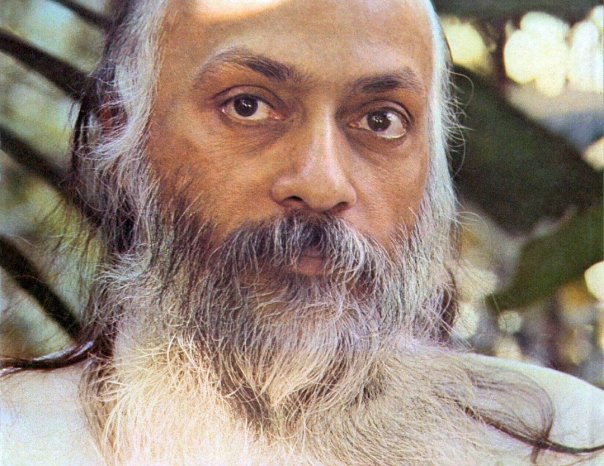Osho – THERE is one very ancient tale. If you listen well, you will find yourself also in it. But if you only hear it, you will laugh at it and forget it. Sometimes you simply laugh to forget a thing, to hide a thing. Many times I have observed that you laugh just to hide your tears. You laugh, because if you don’t laugh, it will be too much, too heavy.
Laughter is a way of avoiding a thing. So please, listen to it as deeply as you can. I know hearing is simple, and listening is very difficult. You hear it and you think that you have listened to it. Hearing is just mechanical. When you listen with perfect awareness, then listening becomes possible. Hearing is just like eating without tasting. You can fill the belly, but deep down, the hunger remains. The body may be satisfied, even overloaded, but the subtle hunger remains – because it can be satisfied only when you become capable of taste. But to taste a thing is to be aware, alert.
Listen to it – the story is one of the most wonderful I have ever come across. It is a Hassidic story. It says that there was a very great city. It appeared great to those who lived in it. In fact, it was not bigger than a small saucer. The houses of the city were skyscrapers. And the people who were the dwellers – they claimed that their house tops almost touched the sky. But to those who were not deluded, the height of the city looked not more than that of an onion.
In that city, people of ten cities were assembled – millions of people. But to those who could count, there were only three fools in that city, not a single person more. The first fool was a great thinker; he was a great system-maker, a metaphysician – almost an Aristotle. He could talk about anything. You could ask him, and he had readymade answers. It was spread in the town, the rumour was in the town that he was the greatest seer.
Of course, he was absolutely blind. He could not see the Himalayas just in front of his eyes, but he could count the legs of the ants crawling on the moon. And he was absolutely blind – but he was a logic-chopper. He saw things which nobody had ever seen: God, angels, heaven and hell. He was very condemnatory of the mundane world which could be seen. He was always appreciating the unseen, which he only could see and nobody else could see.
The second man used to hear the music of the spheres. He used to hear the dancing atoms, the harmony of existence – but he was stone-deaf. And the third fool, the third man, was absolutely naked. He had nothing. He was the poorest man who had ever existed – except that he had a sword which he always carried on guard. He was always afraid, he was paranoid – afraid that somebody was going to rob him someday. Of course, he had nothing.
They all conferred because there was a rumour that their city was in a deep crisis. All the three fools who were thought to be very wise were asked to go deep into the phenomenon: Is it true that the city is in danger? Some crisis is coming? Some future catastrophe?
The blind man looked into the far horizon and said: ’Yes. I can see thousands of soldiers of the enemy country coming. I cannot only see them, I can count how many there are. I can see to which race and to which religion they belong.’
The deaf man listened silently, brooded, and said: ’Yes. I can hear what they are saying, and I can also hear what they are not saying and hiding in their hearts.’
The beggar jumped, the third fool jumped, took his sword in his hand, and said: ’I am afraid. They are going to rob us.’
This is your story. Think about it. Move around and around and penetrate deeper into it. This is the story of man. Man is always pretending that which he is not; that’s a way of hiding oneself. The ugly man tries to look beautiful. The man who is in anguish tries to look happy. The man who does not know anything tries to prove that he knows all. This is how it goes on and on. And unless you become aware of these three fools within you, you will never become a sage. To go beyond the three fools, one becomes the true sage.
Try to stick to the fact; don’t try to hide it in a fiction. Fictions are easy, cheap; one need not do anything, one can simply imagine – and imagination is a way of auto-hypnosis. If you go on continuously repeating something, you will start feeling that you have that thing.
What have you got in this world? What do you possess? You don’t possess even yourself. Then why are you so afraid That somebody is going to rob you? People come to me and they say: ’We cannot trust because we are afraid.’
I ask them: ’Why are you afraid? What have you got?’
They say: ’If we trust, somebody may deceive us’the third fool.
What have you got? Empty-handed you come. Empty-handed you go. And just in between, between and betwixt, the foolishness that you possess something.
Source: from Osho Book “The True Sage”
